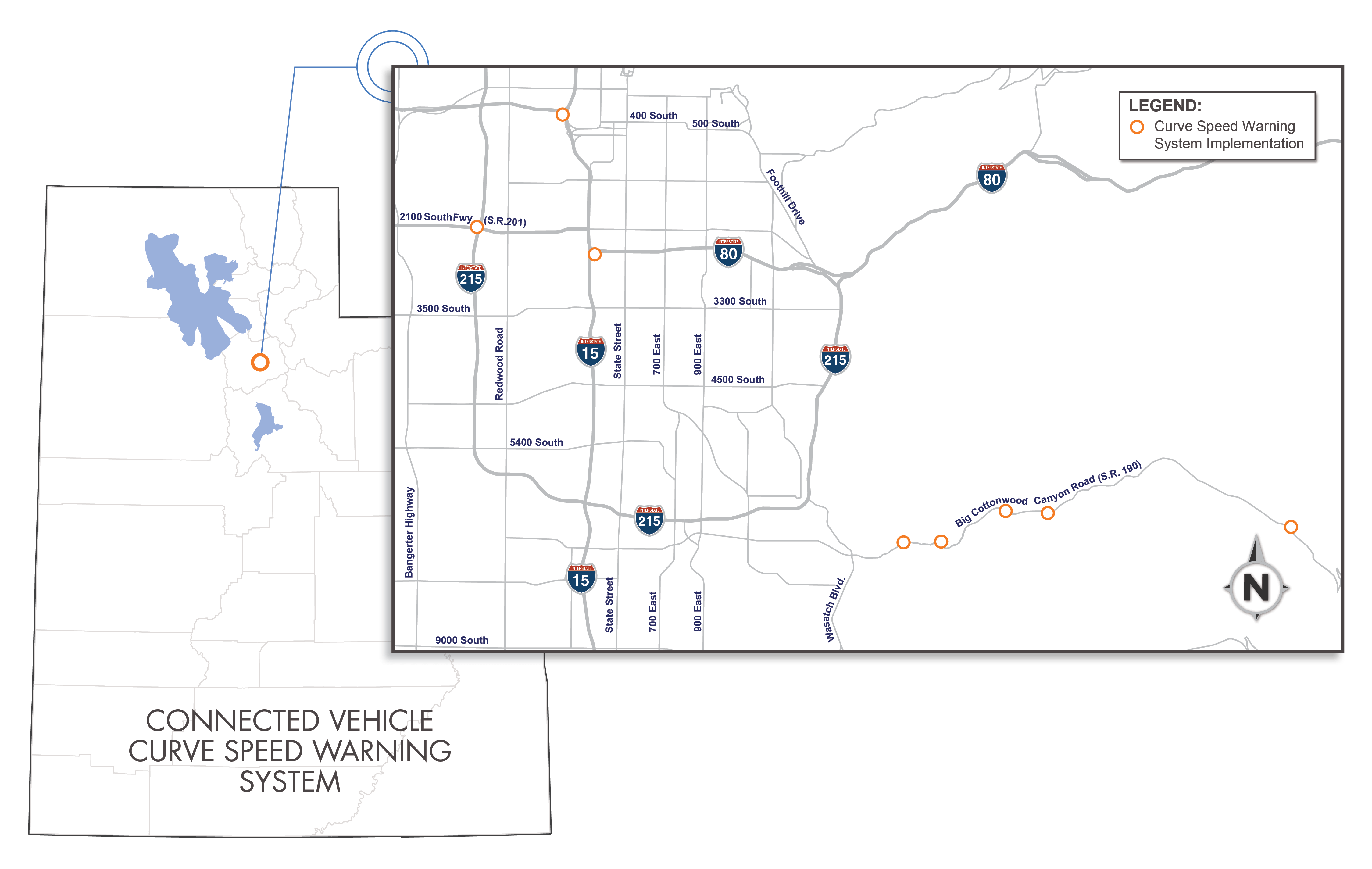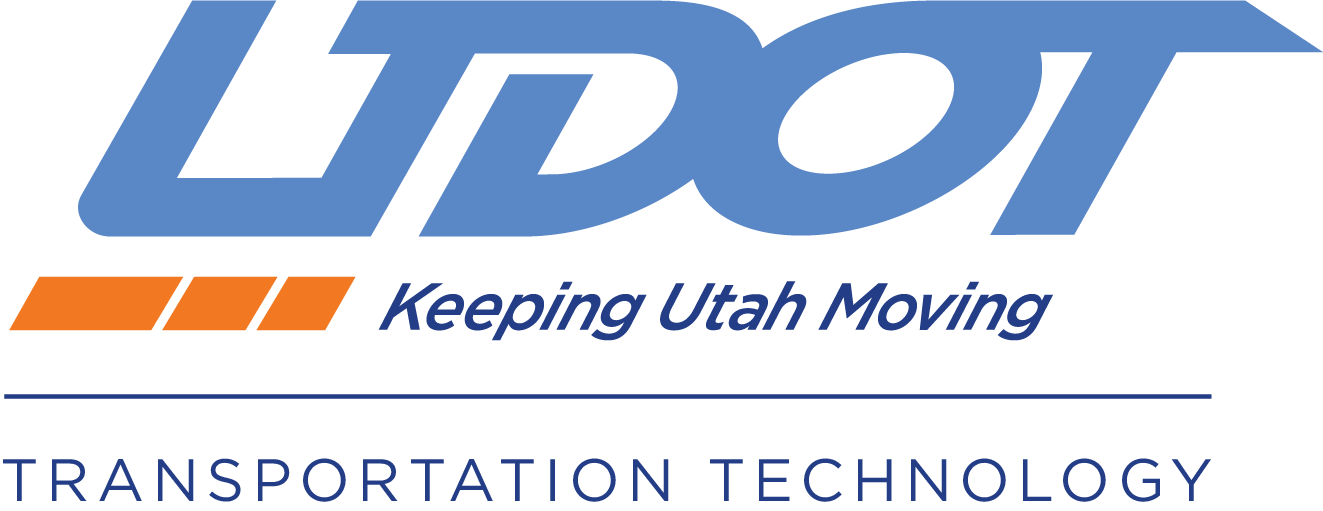Connected Vehicle
Speed Warning
Systems
OVERVIEW
UDOT has implemented a Connected Vehicle Curve Speed Warning system in 20 of the most crash-prone curves in Utah.
The Curve Speed Warning system utilizes vehicle-to-everything(V2X) communication to warn drivers about upcoming curves in the roadway. Roadside equipment is implemented on curves with high curve-related crash rates. These units are aware of the current road condition and send warning signals via wireless communication technology to connected vehicles (CVs) in order to alert drivers if they are traveling too fast for an upcoming curve and its recommended speed.
BENEFITS OF THE TECHNOLOGY
QUICK FACTS
By delivering critically important information to the driver through in-vehicle warning systems, curve-related crashes can be reduced by 46%.
prepare for an upcoming curve if they receive a message directly within their car, intended solely for them. This is believed to reduce the curve-related crashes by 46% at locations where the technology is implemented.
WHERE THE TECHNOLOGY IS DEPLOYED
UDOT has deployed this technology at eight locations within the Salt Lake metro area that have a high-frequency of curve-related crashes for initial deployment of the Curve Speed Warning systems. The locations include freeway ramps connecting I-80 Eastbound to I-15 Southbound, I-215 Northbound to S.R. 201 Westbound, and S.R. 201 Eastbound to I-15 Southbound as well as five road curve locations along S.R. 190 in Big Cottonwood Canyon.
UDOT’s project partner, Panasonic, has developed this connected vehicle (CV) application and related tools. This project is part of UDOT’s Connected Vehicle Data Ecosystem, which was developed in partnership with Panasonic and funded with a federal grant. The success of this project will continue to be measured by the system’s ability to communicate actual curve conditions in a timely manner into a moving vehicle.

